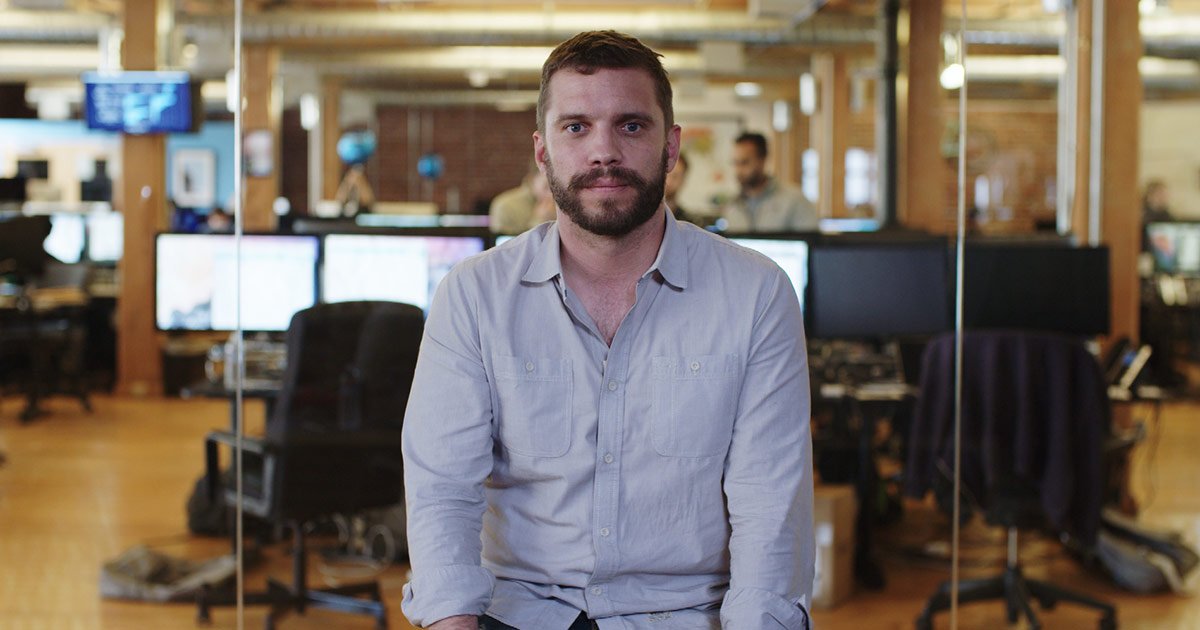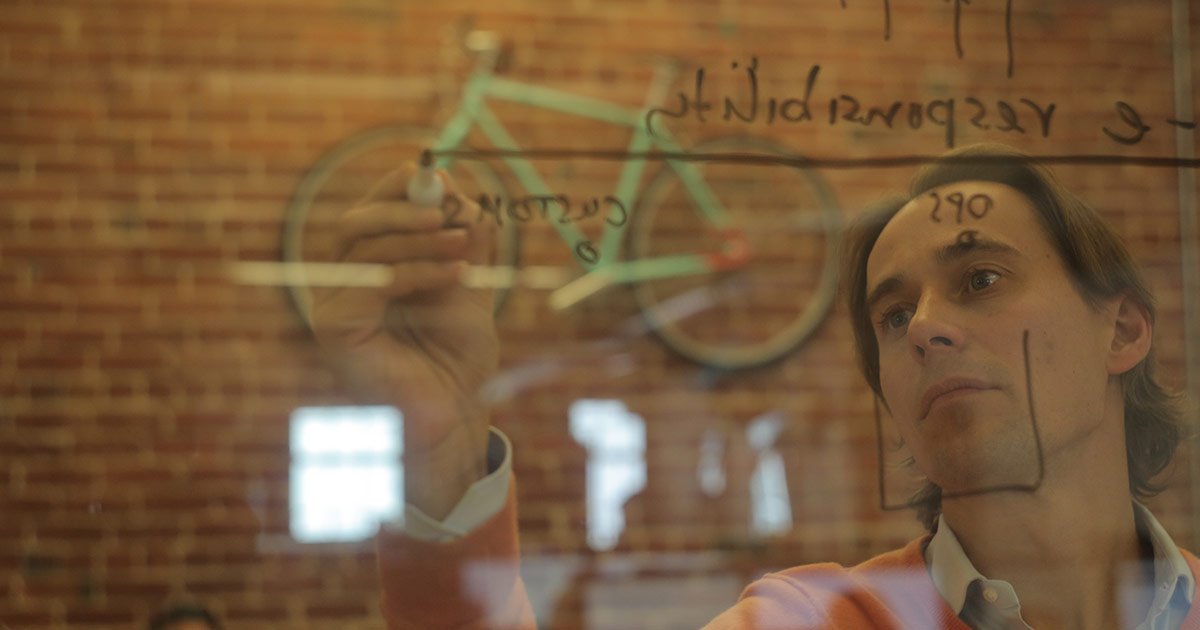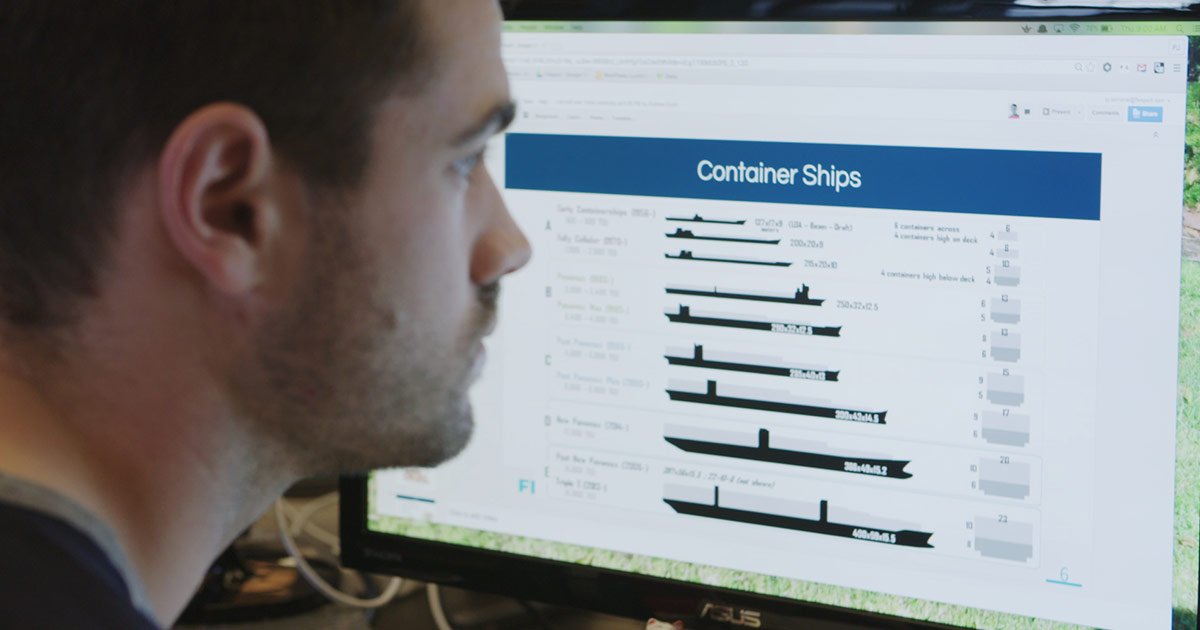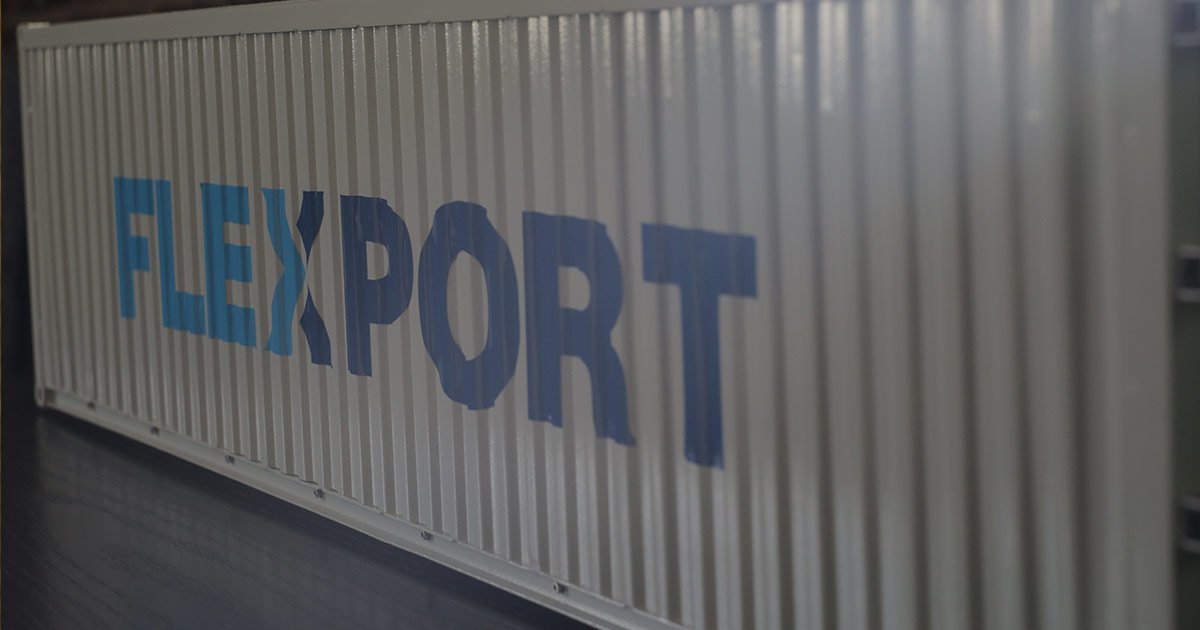In an episode of Challengers, we profiled Flexport, the startup that wants to use tech to make global trade available to everyone. They know their vision is ambitious, but if they succeed, it could change the world. Here’s Flexport’s founder, Ryan Petersen, on how they think they can pull it off.
On starting Flexport and tackling problems that feel too big to fix (but actually aren’t)
The human brain has this very strong unconscious bias against solving the hard problems that we see every day. You don’t even acknowledge it as a problem. Your brain won’t let you go there and so almost anyone who’s ever imported a product has looked at this process and said, “This is a nightmare,” but very few of them set out to fix it.

I don’t think my brain is wired that differently than other peoples’, but at a certain point I had stared at this freight-forwarding problem for so long, that I started to ask the questions nobody wants to think about. Why is this so hard? Why am I having to fax this document to this person in China right now? Eventually I just had enough.
If it’s easy, it’s probably not worth doing. We actually use that as a framework for decision making at Flexport. If something sounds extraordinarily hard, that’s probably the right thing to do. And if something’s really easy, it’s probably not worth doing.
On scaling quickly while maintaining company culture
We now have 100 people. Twelve months ago, I believe were were about 18 people. The company itself has grown 30 percent every month for the last two and a half years. That creates a big challenge: How do you maintain the culture? How do you make sure people are aligned with the values? How do you make sure people know what to do? And that the customer’s not being forgotten in the process?

I think our organizational model, where we really empower people, has been a key part of answering those questions. We give people a lot of freedom to come up with their own ideas and execute them. Don’t wait for permission, but go ahead and try new things. The flip side of that, though, is that you really need to have a culture where making a mistake is okay. Where, if you tried something and it didn’t work, we’ll pat you on the back and congratulate you for trying.
On the importance of having customer service that’s as good as your software
The biggest challenge that we face at Flexport is how do you scale to become a big company without becoming a big bureaucracy. I look at large organizations and I’m appalled at the way people in those organizations behave and the way they treat their customers. As we dove deeper into that, we realized that the number one determinant of a good customer service experience is whether the person on the other end of the phone is empowered to solve the problem. And we wanted to create an organization model that would empower people to solve their customers’ problems.

There’s a huge role for software to play in automating the transactions of global trade, in providing a communication platform, and in giving people structured data to make better decisions in their supply chain, but we don’t think that software alone can solve the problem. There’s a real need for people and human expertise in regulatory compliance, building relationships, and smoothing over problems when they inevitably arise. And so our solution at Flexport has always been a combination of software and human expertise.
On the one big thing people get wrong about startups
There’s this notion that if you if you have a great product, everything else will just happen automatically. The truth is often that the great product comes later. First you come up with an idea, then you find the customers. The growth of the customer base can actually can drive the product.
A lot of times people have that flipped on its head. They go from good idea to great product and think everything will fall into place. But you need a really good sales process early on. You have to identify customers who would benefit from your product. Once you have those customers and start growing, then you’ll get the permission from the world–whether it’s attracting talent or investors–to go and make the product what it should be.

On work-life balance & success
When I started Flexport, I was only going to do it if I could be my authentic self at work and not have a different personality I left at home. I try to be one person and enjoy my life.
I don’t really believe in work-life balance.
I love what we’re doing. I’m learning more everyday than I ever learned in school or in any other business I’ve worked in so I can’t ask for anything more.
I do think that success compounds to a degree, so because you’re successful, you attract more talent and because you have more talent, you become more successful, but it’s still a very, very hard thing to get a business going. To those looking from the outside, it looks like everything happens automatically. It’s actually really challenging.





